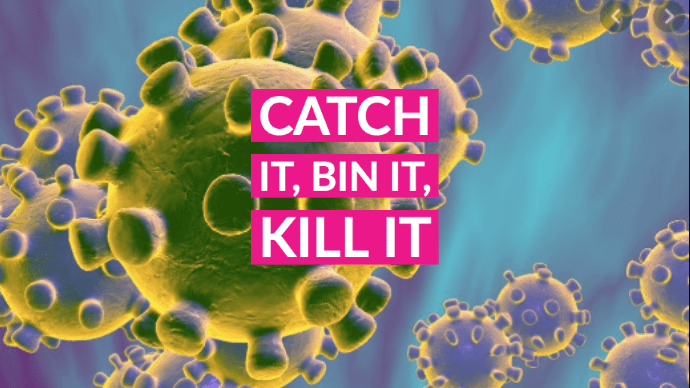As a parent of three kids, I’m continually washing my hands and theirs. Pulling fingers out nostrils, out of pants. Away from dogs on the street (only to protect your pup, not mine) and digging out lots of mud from under 30 fingernails.
Now, I’m no germ phobe, but neither am I lax. Some dirt and germs are good for us! Which is why I find it so hard to believe that the NHS and the UK Government really need to remind people of the basics like washing their hands! (really people?) But as one parent to another, I know you got that covered. (see above) So here’s what you need to know about coronavirus.

Symptoms of coronavirus
The symptoms of coronavirus are:
- a cough
- a high temperature
- shortness of breath
But these symptoms don’t necessarily mean you have the illness.
The symptoms are very similar to other illnesses that are much more common, such as cold and flu viruses. Generally, coronavirus can cause more severe symptoms in people with weakened immune systems, older people, and those with long-term conditions like diabetes, cancer and chronic lung disease. Novel coronavirus (COVID-19) is a new strain of coronavirus first identified in Wuhan City, China.
How coronavirus is spread
Because it’s a new illness, we do not know precisely how coronavirus spreads from person to person. Similar viruses though are spread in cough droplets. It’s very unlikely it can be spread through things like packages or food.
Do I need to avoid public places?
Most people can continue to go to work, school and other public places. You only need to stay away from public places (self-isolate) if advised to by the 111 online coronavirus service or a medical professional.
What’s the risk of coronavirus in the UK?
The UK Chief Medical Officers have raised the risk to the public from low to moderate. Health professionals are working to contact anyone who has been in close contact with people who have coronavirus.
What’s the risk of coronavirus for travellers?
There are some countries and areas where there’s a higher chance of coming into contact with someone with coronavirus. If you or a family member travels for work take a look at the list of places here for up to date travel advice on individual countries and the measures that they have in place. https://www.gov.uk/foreign-travel-advice
How to avoid catching or spreading coronavirus
Do
- Wash your hands with soap and water often – do this for at least 20 seconds. We make our kids sing row, row, row, your boat twice over!
- Always wash your hands when you get home, into work, before you eat. Etc. Etc. You know the drill!
- Use hand sanitiser gel if soap and water are not available.
- Cover your mouth and nose with a tissue or your sleeve (not your hands) when you cough or sneeze
- Put used tissues in the bin straight away and always wash your hands afterwards.
- Try to avoid close contact with unwell people
Don’t
- Do not touch your eyes, nose or mouth if your hands are not clean
Check if you need medical help
NHS 111 has an online coronavirus service that can tell you if you need medical help and advise you what to do.
Call NHS 111 now if you’ve been to:
- Hubei province in China in the last 14 days
- Iran, areas of northern Italy in lockdown or “special care zone” areas in South Korea since 19 February
- other parts of mainland China or South Korea, Thailand, Japan, Hong Kong, Taiwan, Singapore, Malaysia or Macau in the last 14 days and have a cough, high temperature or shortness of breath
- other parts of northern Italy (anywhere north of Pisa, Florence and Rimini), Vietnam, Cambodia, Laos or Myanmar since 19 February and have a cough, high temperature or shortness of breath
- in close contact with someone with confirmed coronavirus.
Do not go to a GP surgery, pharmacy or hospital. Call 111, stay indoors and avoid close contact with other people.
.